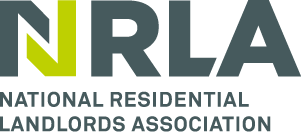Chancellor urged to scrap stamp duty surcharge for landlords
The government should aim to stimulate housing market activity post-lockdown by abolishing the 3% stamp duty surcharge for buy-to-let landlords acquiring additional properties, according to the National Residential Landlords Association (NRLA).
The organisation argues that scrapping the stamp duty surcharge would boost housing market activity by encouraging investors to return to the market and invest in properties and that would in turn help meet the rising demand for rental homes and drive up transaction levels.
Mortgage interest relief changes, the scrapping of the ‘wear and tear’ allowance and the introduction of the 3% stamp duty surcharge have hit landlords’ profits over the past few of years, which partly explains why so many people are exiting the BTL market and thus reducing the supply of much needed private rented stock.
The government’s draconian tax changes have not just pushed a number of BTL landlords out of the PRS, but have also left prospective tenants in some parts of the country with little alternative but to bid against each other, pushing rents up in the process, as a result of falling housing supply.
Given that investors invest in a wide range of properties, Ben Beadle, chief executive of the NRLA, argues that supporting activity in this area of the market would add to the net supply of housing.
This would, according to Beadle, include investment in new build homes, the conversion of large properties into affordable units, changing the use of a property from commercial to residential, or bringing one of the almost 650,000 empty homes in England back into use.
He said: “To have a tax on developing new housing is completely nonsensical at a time when more is needed. Supporting growth in the private rental market, alongside all other housing types, would provide a significant boost to the economy in the midst of the Covid-19 pandemic. Research published last year suggests that landlords inject over £3.5bn into local businesses across the UK.”
Another change the NRLA wants to see made is to ensure the tax system encourages the provision of longer-term rental property over short-term holiday lets.
From April this year the final phase of reducing mortgage interest relief for landlords to the basic rate of income tax will be completed. This measure does not apply though to furnished holiday lets. This has encouraged the removal of properties from the long-term market for use as short-term holiday lets.
Beadle, commented: “To be taxing long term homes to rent less favourably than holiday lets is simply bizarre. It completely undermines efforts by the Government to encourage the provision of long term, secure housing.
“It is time for the government to realise that its tax policies have created a shortage of rented housing. This can only mean higher rents and reduced choice for renters. This is not going to do much for the levelling up agenda.”



